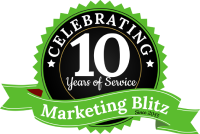Table of Contents
Toggle1: Introduction:
Social media marketing companies help businesses promote their products and services effectively on various social platforms. At Marketing Blitz, we understand the profound impact a well-executed social media strategy can have on a brand’s visibility, reach, and overall success. This comprehensive guide is designed to be your compass in navigating this vibrant digital marketing channel, where we define the essence of Strategic Social Media Marketing, unveil its critical significance in today’s marketing and lead generation landscape, and provide you with an expansive view of the ever-evolving social media marketing. Click link to learn more about our social media management packages or social media advertising package or contact us toll free 1-(800) 897-3900 for a free consultation.
Whether you’re a small local business in Toronto, Vancouver, Ottawa, Mississauga etc., our expert insights will help you navigate the ever-evolving world of social media. Stay ahead of the competition, enhance your brand visibility, and connect with your target audience. Discover how to craft compelling content, optimize ad campaigns, and measure ROI. Ready to take your social media marketing to the next level? Dive into our guide and start your journey towards social media success today!
2: What is Social Media Marketing?
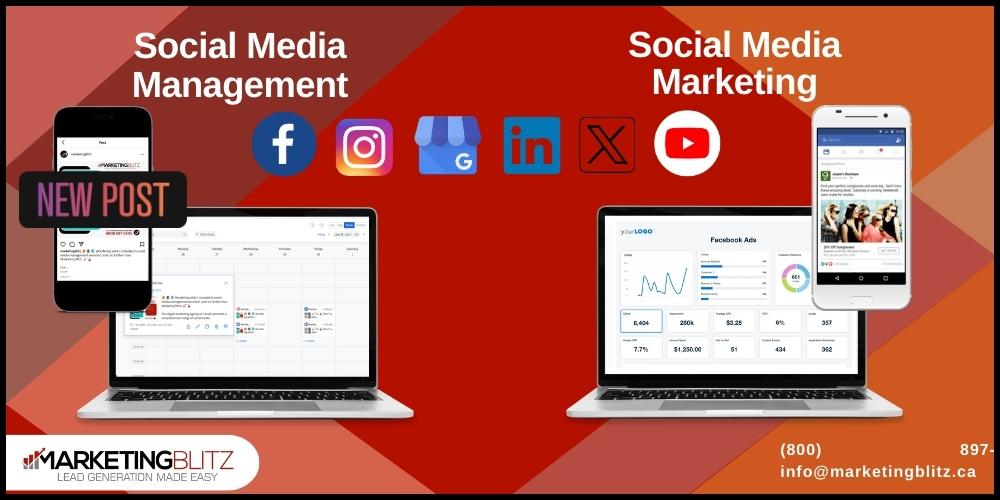
Social Media Marketing, often abbreviated as SMM, is a multifaceted digital marketing strategy that leverages various social media platforms to promote brands, products, services, or content. It is a dynamic and highly influential approach that businesses and individuals utilize to connect with their target audience, enhance brand visibility, drive website traffic, and ultimately achieve their marketing and business objectives.
At its core, Social Media Marketing involves creating and sharing content on social media platforms such as Facebook, Instagram, Twitter, LinkedIn, Pinterest, TikTok, and others. This content can take various forms, including text posts, images, videos, and interactive elements like polls and quizzes. The key objective is to engage with users, build a community of followers, and encourage them to interact with the content, whether through likes, comments, shares, or other forms of engagement.
One of the primary goals of social media marketing companies is to help your business boost brand awareness and visibility. By consistently delivering valuable and relevant content to the target audience, businesses can establish a strong online presence and ensure that their brand remains top-of-mind when potential customers are making purchasing decisions.
Moreover, Social Media Marketing extends beyond merely broadcasting messages. It includes actively listening to the audience, responding to comments and inquiries, and participating in conversations. This two-way communication fosters a sense of connection and trust between brands and their followers.
Social Media Management and Marketing also encompasses paid advertising on social media platforms. Businesses can create targeted ad campaigns to reach specific demographics, interests, and behaviors, ensuring that their content is seen by the most relevant audience. Paid social media advertising can be highly effective in driving website visits, generating leads, and increasing conversions.
Furthermore, Social Media Marketing is not limited to organic or paid content on social media platforms alone. It can be integrated with other digital marketing strategies, such as Search Engine Optimization (SEO), Content Marketing, Email Marketing, and more. This synergy between different digital channels amplifies the impact of marketing efforts and provides a holistic approach to reaching and engaging with the audience. Contact our social media marketing company for a free consultation at 1-(800) 897-3900.
What is the connection between Social Media Marketing and Social Media Management?
Social Media Marketing (SMM) and Social Media Management (SMM) are two closely related but distinct aspects of a comprehensive social media strategy. Here’s the connection between the two:
Social Media Marketing (SMM):
- SMM focuses on the promotional and advertising aspects of a brand’s presence on social media platforms.
- It involves creating and executing paid advertising campaigns, sponsored content, and boosted posts to reach a wider and more targeted audience.
- The primary goal of SMM is to drive specific actions or outcomes, such as website visits, lead generation, product purchases, or brand awareness.
- SMM often involves budget allocation for paid advertising on social media platforms like Facebook Ads, Instagram Ads, Twitter Ads, etc.
- SMM is results-oriented and often involves measuring the return on investment (ROI) of advertising efforts.
Social Media Management (SMM):
- SMM is the ongoing process of managing a brand’s presence on social media platforms through organic, non-paid activities.
- It focuses on creating, curating, and publishing content, such as posts, images, videos, and articles, to engage with the audience and build a community of followers.
- SMM involves responding to comments, messages, and interactions from followers, fostering two-way communication and building brand trust.
- The primary goal of SMM is to maintain an active and positive presence on social media, enhance brand visibility, and nurture relationships with the audience.
- SMM requires consistent posting, content planning, and social media monitoring to ensure a cohesive and effective online presence.
The Connection:
- Social Media Marketing and Social Media Management are interconnected because they both contribute to a brand’s overall social media strategy.
- Effective SMM often requires a strong social media presence built through SMM activities. Engaging content and an active community of followers can amplify the impact of paid advertising campaigns.
- SMM and SMM work together to create a well-rounded social media strategy. For example, SMM efforts can generate leads and direct traffic to a website, while SMM efforts can nurture those leads, answer inquiries, and provide valuable content.
In summary, while Social Media Marketing focuses on paid advertising and achieving specific marketing goals, Social Media Management focuses on the organic, day-to-day management of a brand’s social media presence. Both are integral parts of a successful social media strategy, with each complementing and enhancing the other to achieve overall marketing objectives.
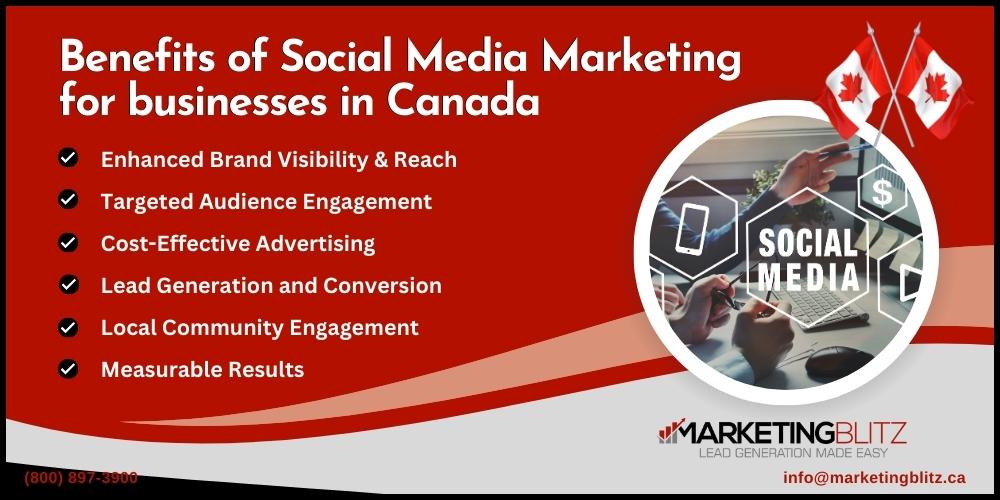
What are the benefits of Social Media Marketing for businesses in Canada?
Social Media Marketing (SMM) has emerged as a game-changer for Canadian businesses, offering a myriad of benefits, whether they operate at a local or national level. At Marketing Blitz, recognized as one of the best social media agencies in Canada, we understand the transformative power of SMM and how it can be harnessed to elevate your brand’s success.
- Enhanced Brand Visibility and Reach: SMM enables Canadian businesses to expand their brand’s visibility and reach to a broader audience, whether it’s in the local community or across the nation. By crafting engaging and shareable content, you can amplify your brand’s presence, making it more accessible to potential customers.
- Targeted Audience Engagement: SMM allows businesses to connect with their target audience on a personal level. Whether you’re a local shop in Toronto or a nationwide corporation, you can tailor your messaging to resonate with your ideal customers. Marketing Blitz specializes in creating strategies that ensure your content reaches the right people at the right time.
- Cost-Effective Advertising: Compared to traditional advertising methods, SMM offers cost-effective options for promoting your products or services. With paid advertising on platforms like Facebook and Instagram, you can maximize your advertising budget and achieve measurable results.
- Lead Generation and Conversion: SMM is a powerful tool for generating leads and converting them into loyal customers. Marketing Blitz can help you craft compelling content and ad campaigns that drive potential customers to take action.
- Local Community Engagement: For local businesses, engaging with the community is vital. SMM allows you to foster a sense of community and build lasting relationships with local customers. We understand the importance of local engagement and can help you create strategies tailored to your specific region.
- National Market Expansion: Canadian businesses aiming to expand nationally can leverage SMM to target different regions and demographics. Our expertise in national SMM strategies can assist you in reaching a broader Canadian audience.
- Measurable Results: SMM offers robust analytics tools that provide insights into campaign performance. You can track ROI, engagement metrics, and conversion rates to refine your strategy continually.
- Brand Reputation and Credibility: A well-managed social media presence enhances your brand’s credibility. Marketing Blitz can help you build a positive online reputation through effective social media management.
In conclusion, the benefits of Social Media Marketing for Canadian businesses, both local and national, are vast and can significantly impact your brand’s success. At Marketing Blitz, we specialize in developing customized SMM strategies to help you achieve your specific goals, ensuring that your brand thrives in the ever-evolving world of social media. Social media marketing companies can help you with both the day to day management of your business pages and lead generation through social media advertising.
3: Social Media Marketing Trends In Various Canadian Cities

Toronto, Ontario:
- As Canada’s largest city and a major business hub, Toronto boasts a thriving social media marketing scene. Local businesses, from startups to established corporations, actively engage in SMM to reach the diverse population.
- The competitive landscape in Toronto necessitates innovative SMM strategies to stand out in the crowd. Marketing Blitz excels in crafting tailored campaigns that resonate with Toronto’s diverse demographic.
Vancouver, British Columbia:
- Vancouver’s SMM landscape is marked by its environmentally conscious and tech-savvy population. Businesses often leverage SMM to highlight their sustainability efforts and connect with the local community.
- Marketing Blitz specializes in creating SMM strategies that align with Vancouver’s eco-friendly ethos while driving engagement and brand growth.
Calgary, Alberta:
- Calgary’s dynamic economy and entrepreneurial spirit have led to a thriving SMM environment. Businesses in sectors like energy, finance, and technology actively use social media to connect with clients and customers.
- Marketing Blitz understands the importance of SMM for businesses in Calgary and offers strategies that cater to their unique needs, whether it’s in the oil and gas sector or the local food scene.
Montreal, Quebec:
- Montreal’s rich cultural diversity and bilingual population require nuanced SMM strategies. Businesses often create content in both French and English to connect with a broader audience.
- Marketing Blitz’s expertise extends to bilingual SMM campaigns, ensuring that businesses in Montreal effectively engage with their target market.
Halifax, Nova Scotia:
- In Halifax, SMM plays a crucial role in promoting local tourism, hospitality, and seafood industries. Social media campaigns often focus on showcasing the city’s charm and attractions.
- Marketing Blitz has a deep understanding of the unique marketing opportunities in Halifax, helping businesses boost their online presence while celebrating the city’s maritime culture.
Edmonton, Alberta:
- Edmonton’s business landscape is diverse, with a strong presence in education, healthcare, and technology. SMM is used to connect with the local community and highlight innovative initiatives.
- Marketing Blitz can tailor SMM strategies for Edmonton businesses, focusing on industry-specific trends and community engagement.
Ottawa, Ontario:
- As the nation’s capital, Ottawa features a thriving government and tech sector. SMM is often geared towards showcasing innovation, research, and public engagement.
- Marketing Blitz’s strategic approach aligns with Ottawa’s unique blend of government and technology, helping businesses make their mark in the city’s competitive landscape.
In each of these Canadian cities, the state of SMM is shaped by local demographics, industries, and consumer behaviors. Marketing Blitz understands these regional nuances and offers SMM solutions that empower businesses to thrive in their specific markets while staying ahead of the evolving trends in the world of social media marketing.
4: Choosing A Social Media Marketing Agency
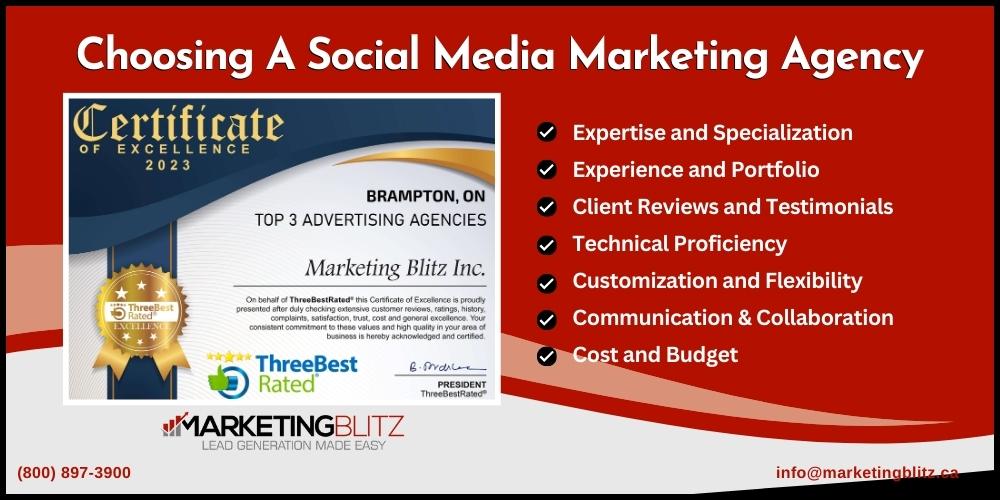
Choosing the right social media marketing companies in Canada is a crucial decision that can significantly impact your business’s online presence and growth. Here’s a guide to help you make an informed choice:
- Define Your Goals and Needs: Before you start looking for an agency, clearly define your social media marketing goals. Do you want to increase brand awareness, drive website traffic, generate leads, or boost sales? Understanding your objectives will help you find an agency that specializes in your specific needs.
- Industry Experience: Look for agencies with experience in your industry. They will have a better understanding of your target audience, competitors, and industry trends. Marketing Blitz, with its wide range of industry experience, can offer valuable insights and strategies tailored to your business.
- Client Portfolio: Review the agency’s client portfolio and case studies. This will give you an idea of their past work and successes. Pay attention to whether they have worked with businesses similar to yours and if they have achieved measurable results.
- Expertise in Social Media Platforms: Different social media platforms require distinct strategies. Ensure the agency has expertise in the platforms most relevant to your business, whether it’s Facebook, Instagram, Twitter, LinkedIn, or others. Marketing Blitz specializes in a wide range of platforms to meet your needs.
- Content Creation and Strategy: Effective social media marketing relies on compelling content. Inquire about the agency’s content creation capabilities, including graphics, videos, and written content. A strong content strategy is vital for engaging your target audience.
- Community Engagement: Engaging with your online community is crucial. Ask the agency how they plan to interact with your audience, respond to comments, and manage customer inquiries. Marketing Blitz prioritizes community engagement to build strong relationships with your followers.
- Measurement and Analytics: Data-driven decision-making is key to successful SMM. Ensure the agency has a robust analytics process in place to measure the performance of your campaigns. This includes tracking key metrics, analyzing results, and making data-backed adjustments for continuous improvement.
- Customized Strategies: Beware of agencies offering one-size-fits-all solutions. Your business is unique, and your SMM strategy should reflect that. Look for agencies that develop customized strategies tailored to your goals, audience, and industry.
- Transparency and Communication: Effective communication is essential. Choose an agency that maintains transparency, provides regular updates, and is responsive to your queries and feedback. Marketing Blitz values open communication with clients to ensure alignment and success.
- Budget and Pricing: Consider your budget and the agency’s pricing structure. Ensure you are clear on what services are included in the package and whether there are any additional costs. Marketing Blitz offers competitive pricing options to accommodate various budgets.
- Client Reviews and References: Read client reviews and ask for references. Hearing from past or current clients can provide valuable insights into the agency’s performance and client satisfaction.
- Contract Terms: Carefully review the contract terms, including the duration of the engagement and any exit clauses. Ensure you have a clear understanding of the terms before signing.
- Long-Term Partnership: Building a strong online presence and achieving SMM goals often requires a long-term partnership. Choose an agency that is committed to your long-term success and growth.
By following these guidelines and conducting thorough research, you can select a social media marketing agency in Canada, such as Marketing Blitz, that aligns with your business objectives, industry, and values. With the right agency by your side, you can harness the power of social media to elevate your brand and engage your audience effectively.
5: Aligning Your Business Objectives with Strategic Social Media Marketing Goals

Social media marketing companies can help you to lay the groundwork for a successful strategy.
Identifying Social Media Marketing goals for your business
Setting well-defined and measurable social media marketing objectives is comparable to plotting a path for your business. Each objective serves as a guiding compass, directing your strategies and actions toward concrete and meaningful results. What is your social media marketing goal? it could be:
Enhancing Brand Awareness:
- Objective: Boosting recognition and recall.
- Strategies: Engaging content, consistent branding, and collaborations.
- Metrics: Reach, impressions, brand mentions.
Increasing Website Traffic:
- Objective: Directing a flow of users to your website.
- Strategies: Compelling CTAs, link-sharing, and enticing content.
- Metrics: Click-through rates, website visits, referral traffic.
Generating Leads:
- Objective: Capturing potential customers.
- Strategies: Lead magnets, targeted content, and landing pages.
- Metrics: Conversion rates, lead form submissions.
Boosting Sales and Revenue:
- Objective: Driving conversions and revenue growth.
- Strategies: Product promotions, exclusive offers, and customer testimonials.
- Metrics: Sales numbers, revenue generated, ROI.
Enhancing Customer Engagement:
- Objective: Fostering meaningful interactions.
- Strategies: Interactive content, community building, and responsive communication.
- Metrics: Likes, comments, shares, and direct engagement.
Improving Customer Satisfaction:
- Objective: Ensuring customer delight and loyalty.
- Strategies: Prompt customer support, feedback incorporation, and personalized interactions.
- Metrics: Positive reviews, customer feedback, and satisfaction surveys.
Conducting Market Research:
- Objective: Gathering insights for strategic decision-making.
- Strategies: Polls, surveys, and monitoring industry trends.
- Metrics: Responses, feedback, and competitive analysis.
Defining Social Media Marketing Target Audience
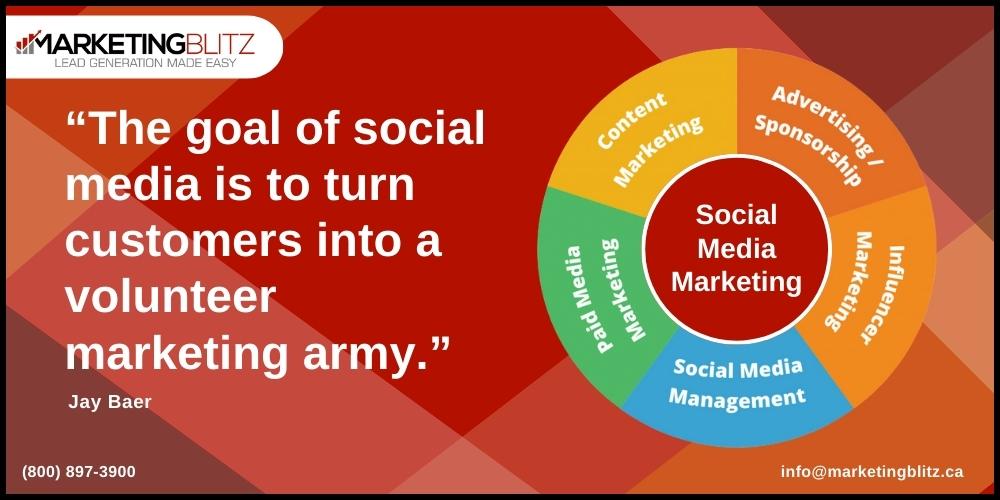
Defining your target social media marketing audience is a crucial step in creating a successful marketing strategy. This process involves identifying and specifying the group of people or demographics you want to reach and engage with through your social media efforts. Here’s an expanded explanation:
1. Identifying Your Ideal Audience: To define your target audience, you must first determine who your ideal customers or clients are. Consider factors such as age, gender, location, interests, behaviors, and preferences. Understanding these characteristics will help you narrow down your audience.
2. Segmenting Your Audience: In many cases, businesses have multiple customer segments with different needs and interests. Segmenting your audience means dividing them into distinct groups based on shared characteristics. This allows you to tailor your social media content and messages to each group’s specific preferences.
3. Creating Buyer Personas: Buyer personas are detailed profiles of your ideal customers. They include information about demographics, psychographics, pain points, goals, and buying behaviors. Developing buyer personas helps you gain a deeper understanding of your audience’s motivations and challenges.
4. Conducting Market Research: Researching your industry and competitors can provide valuable insights into your target audience. Analyze what types of content resonate with similar businesses’ audiences and look for gaps or opportunities in the market.
5. Defining Your Unique Selling Proposition (USP): Understanding what sets your products or services apart from competitors is essential. Your USP should align with the needs and desires of your target audience, making your offerings more appealing to them.
6. Tailoring Content and Messaging: Once you’ve defined your target audience, you can create content and messaging that speaks directly to their interests and pain points. This personalization makes your social media marketing more effective in capturing their attention and engaging them.
7. Testing and Iterating: Social media marketing is an ongoing process. As you implement your strategy, regularly analyze the performance of your content and campaigns. Adjust your targeting and messaging based on the data and feedback you receive to continually refine your approach.
8. Monitoring and Tracking: Utilize social media analytics tools to monitor the behavior and engagement of your target audience. Track metrics like likes, shares, comments, click-through rates, and conversions to gauge the effectiveness of your efforts.
9. Adapting to Changes: Audience preferences and behaviors can evolve over time, as can social media platforms and algorithms. Stay adaptable and be prepared to adjust your targeting and messaging strategies as needed to remain relevant and effective.
In summary, defining your target social media marketing audience involves understanding your ideal customers, segmenting them, creating buyer personas, conducting research, highlighting your USP, tailoring content, testing and iterating, monitoring performance, and adapting to changes in the dynamic world of social media marketing. This process ensures that your efforts are focused on reaching the right people with the right messages, ultimately leading to better engagement and results.
6: Choosing the Right Social Media Marketing Platform
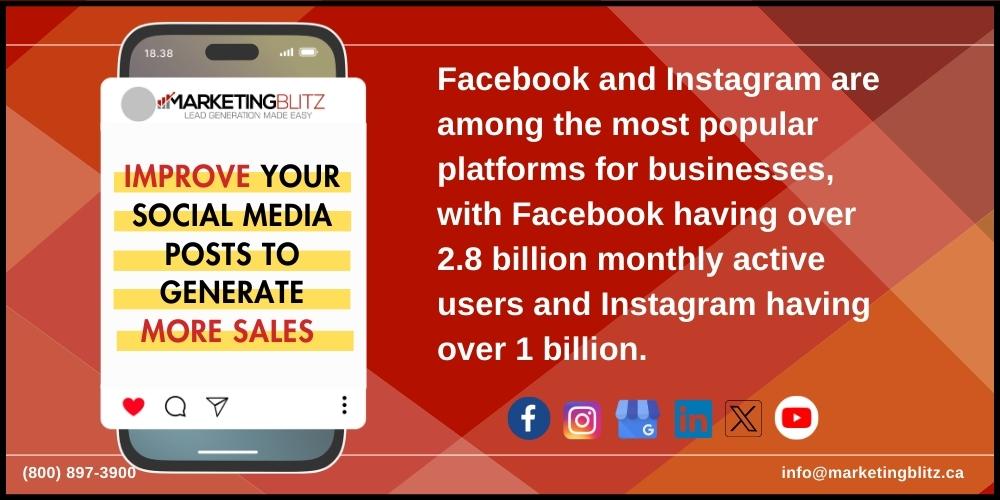
In the dynamic world of social media, the key to a successful marketing campaign lies in the strategic selection of platforms. It involves a deep understanding of each major platform’s unique characteristics, aligning these with specific business objectives, and crafting customized strategies. By doing so, social media marketing companies can not only navigate but truly help your business excel in the multifaceted realm of social media marketing and Management.
Overview of Major Social Media Platforms
Facebook:
- Audience: Boasting 2.8 billion monthly active users globally, Facebook caters to a diverse demographic, making it a versatile platform.
- Business Fit: Well-suited for businesses aiming at brand awareness, community building, and targeted advertising.
- Strategies:
- Engaging Visual Content: Leverage eye-catching images and videos to capture user attention.
- Polls and Surveys: Encourage user participation and gather valuable insights.
- Sponsored Posts: Boost visibility through targeted advertising.
Instagram:
- Audience: With over 1 billion monthly users, Instagram skews younger, making it ideal for visually-driven content.
- Business Fit: Perfect for lifestyle brands, fashion, and businesses focusing on visual storytelling.
- Strategies:
- High-Quality Imagery: Invest in visually appealing photos and graphics.
- Instagram Stories: Utilize ephemeral content for behind-the-scenes and limited-time promotions.
- IGTV: Create long-form video content for deeper engagement.
Twitter:
- Audience: Known for real-time updates, Twitter has around 396 million monthly active users.
- Business Fit: Suitable for businesses involved in news, customer engagement, and trending topics.
- Strategies:
- Hashtags: Join relevant conversations and increase discoverability.
- Concise Messaging: Craft brief, impactful tweets to convey messages effectively.
- Regular Updates: Stay active with consistent, timely posts.
LinkedIn:
- Audience: With 774 million members, LinkedIn is a professional network focused on B2B interactions.
- Business Fit: Ideal for networking, B2B marketing, and establishing industry thought leadership.
- Strategies:
- Professional Content: Share industry insights, whitepapers, and thought leadership articles.
- Thought Leadership: Publish long-form content showcasing expertise.
- Networking: Engage with professionals and participate in relevant groups.
Pinterest:
- Audience: Skewing towards a female audience, Pinterest has around 478 million monthly users.
- Business Fit: Excellent for e-commerce, lifestyle, and businesses with visually appealing products.
- Strategies:
- Infographics: Share visually compelling information about products or services.
- Step-by-Step Guides: Engage users with DIY and how-to content.
- Visual Appeal: Focus on aesthetically pleasing and inspiring visuals.
Platform Selection Based on Business Type
Businesses select different social media platforms based on their intention to align with their target audience, industry characteristics, and marketing goals. Here’s a breakdown of why platform selection varies:
- Local Businesses can effectively utilize platforms like Facebook, Instagram, and Google My Business. Leveraging local targeting, customer reviews, and visually engaging content is crucial. Strategies involve employing location-based targeting for promotions, highlighting positive customer reviews, and showcasing the local vibe through appealing visuals.
- For E-commerce Ventures, Instagram, Facebook, and Pinterest are recommended due to their visual-centric nature and shopping features. Strategies include displaying products in action through images and videos, utilizing platform-specific shopping features for direct purchases, and leveraging influencers for product endorsements.
- B2B Enterprises should focus on LinkedIn and Twitter for professional networking, industry updates, and thought leadership. Strategies encompass connecting with industry professionals, joining relevant groups for networking, sharing and commenting on the latest trends and news, and establishing the brand as an industry authority.
- Service-Based Companies can effectively use Instagram, Facebook, and Twitter to showcase expertise, client testimonials, and engage with potential clients. Strategies involve highlighting services through visually appealing content, sharing success stories and positive feedback, and conducting polls, Q&A sessions, and sharing valuable insights for enhanced engagement.
Customizing Social Media Marketing Strategies for Each Platform
Tailored Content:
- Platform-Specific Content: Adapt content to match the strengths and preferences of each platform.
- Visual Consistency: Maintain a consistent visual style to enhance brand recognition.
- Adapted Messaging: Tailor your messaging to align with the communication style of each platform.
Posting Schedule:
- Optimal Posting Times: Research and identify the peak times for user activity on each platform.
- Content Calendar: Develop a content calendar for regular and timely posting.
- Real-Time Engagement: Stay active during peak hours for higher engagement.
Adapted Engagement:
- Conversation Styles: Adjust your engagement approach based on the platform’s predominant communication style.
- Response Time: Prioritize quick responses to comments and messages for enhanced customer engagement.
- Interactive Content: Incorporate polls, quizzes, and interactive content to boost engagement.
Utilizing Features:
- Exploring New Features: Keep abreast of platform updates and utilize new features promptly.
- Storytelling Tools: Leverage features like Stories, Reels, or LinkedIn Articles for impactful storytelling.
- Analytics Utilization: Monitor platform analytics to assess the performance of various features and content types.
If you find yourself facing the challenges of crafting customized Social Media Marketing Strategies for your business, look no further than Marketing Blitz. As one of the best social media agencies in Canada, our seasoned experts possess an in-depth understanding of each platform’s intricacies, guaranteeing your brand receives the specialized attention it deserves. Whether it’s creating captivating content, optimizing posting schedules, or harnessing cutting-edge features, we’re here to enhance your social media presence. Don’t let the complexities of the digital marketing overwhelm you—partner with Marketing Blitz and let your brand shine brightly online and social media platforms.
6: Crafting an Engaging Social Media Marketing Content Strategy

Crafting an engaging Social Media Marketing Content Strategy is a vital aspect of any successful social media campaign. This strategy involves carefully planning and curating content that resonates with your target audience, keeps them interested, and encourages interaction. Here are some key elements to consider when developing your content strategy:
Audience Understanding: Start by gaining a deep understanding of your target audience. Who are they? What are their interests, pain points, and preferences? Tailor your content to align with their needs and preferences.
Content Goals: Define clear goals for your content. Are you aiming to increase brand awareness, drive website traffic, generate leads, or boost sales? Your content should align with these objectives.
Content Types: Diversify your content types to keep your audience engaged. This can include blog posts, infographics, videos, podcasts, webinars, and more. Experiment with different formats to see what resonates best with your audience.
Consistency: Maintain a consistent posting schedule. Regularly updated content keeps your audience engaged and coming back for more. Use social media management tools to plan and schedule posts in advance.
Storytelling: Craft compelling narratives that connect with your audience on an emotional level. Share stories that highlight your brand’s values, mission, and culture.
Visual Appeal: Incorporate high-quality visuals, such as images and videos, to make your content more engaging. Use eye-catching graphics and videos that enhance your message.
Keywords and SEO: Optimize your content for search engines by incorporating relevant keywords. This can help your content rank higher in search results and attract organic traffic.
Engagement Strategy: Encourage interaction and engagement with your audience. Respond promptly to comments and messages, run contests, and ask questions to spark discussions.
Analytics and Measurement: Use analytics tools to track the performance of your content. Monitor key metrics like reach, engagement, click-through rates, and conversion rates. Adjust your strategy based on the data.
Adaptability: Stay flexible and adapt your content strategy based on audience feedback and changing trends. What works today may not work tomorrow, so be ready to pivot when necessary.
Crafting an engaging Content Strategy is an ongoing process that requires continuous refinement and optimization from social media marketing companies. By understanding your audience, setting clear goals, and delivering valuable content consistently, you can build a strong online presence and drive meaningful engagement with your target audience.
7: How Much Is Social Media Marketing?
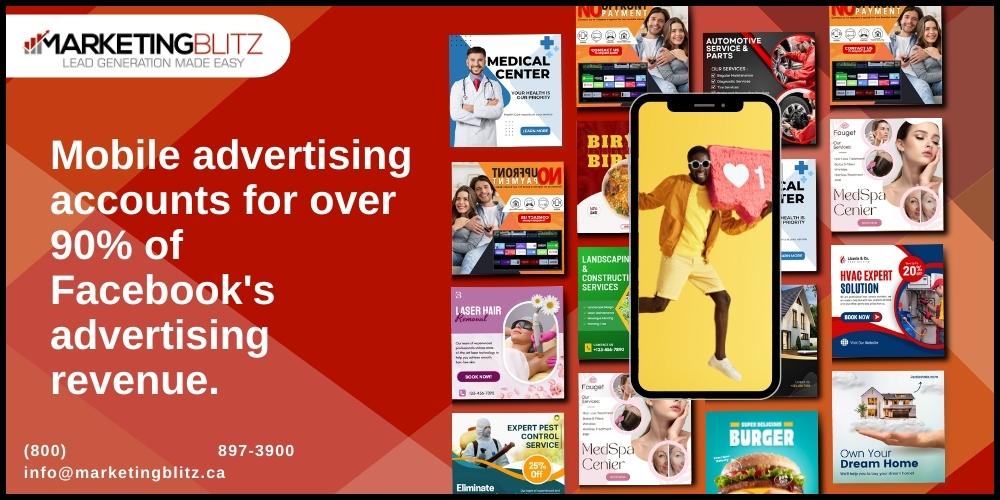
This is a question that many businesses, both large and small, often ask social media marketing companies when considering their digital marketing budgets. The cost of Social Media Marketing and management can vary widely depending on several factors.
Here’s a breakdown of some of the factors that influence the cost of Social Media Marketing:
- Business Goals and Objectives: The first step in determining the cost of Social Media Marketing is to define your business goals and objectives. Are you looking to increase brand awareness, drive website traffic, generate leads, or boost sales? Your specific goals will impact the strategies and resources required, which, in turn, affect the cost.
- Target Audience: The size and characteristics of your target audience play a significant role. Marketing to a niche audience might require less investment than reaching a broad and diverse audience.
- Social Media Platforms: Different social media platforms have varying advertising costs. Platforms like Facebook, Instagram, and Twitter offer paid advertising options, and the cost per click or impression can vary based on platform popularity and competition.
- Content Creation: The quality and quantity of content you produce also affect costs. High-quality visuals, videos, and written content may require more investment in terms of creative resources.
- Ad Campaigns: Running paid advertising campaigns on social media platforms involves budget allocation for ad spend. The budget can be adjusted based on campaign objectives, targeting options, and bidding strategies.
- Frequency of Posting: Posting frequency impacts the cost as well. Maintaining an active and engaging social media presence may require more content creation and management resources.
- Social Media Management Tools: Subscription fees for social media management tools and analytics platforms can add to the overall cost.
- Content Promotion: Boosting posts and running sponsored content can increase visibility but also adds to the cost.
- Agency vs. In-House: Deciding whether to hire an agency or manage social media marketing in-house can also affect costs. Agencies often charge fees for their services, while in-house teams may require salaries, training, and tools.
- Geographic Location: The cost of Social Media Marketing can vary by geographic location. Ad costs may be higher in more competitive markets or regions with a higher cost of living.
- Monitoring and Analytics: Implementing tools for monitoring and analytics is essential for measuring the effectiveness of your social media campaigns. These tools may have subscription costs.
- Testing and Optimization: Ongoing testing and optimization of ad campaigns can also influence costs. It’s important to allocate resources for refining your strategies based on performance data.
- Competition: Your industry’s competitiveness on social media platforms can affect costs. More competitive industries may require higher budgets to stand out.
- Seasonal Considerations: Some businesses may need to adjust their Social Media Marketing budgets seasonally, especially if their products or services are subject to seasonal trends.
It’s essential to approach Social Media Marketing with a clear budget and strategy tailored to your business objectives. Regularly monitoring and assessing the effectiveness of your campaigns will help you make informed decisions about budget allocation and optimization.
Social Media Marketing Campaign Types Overview:
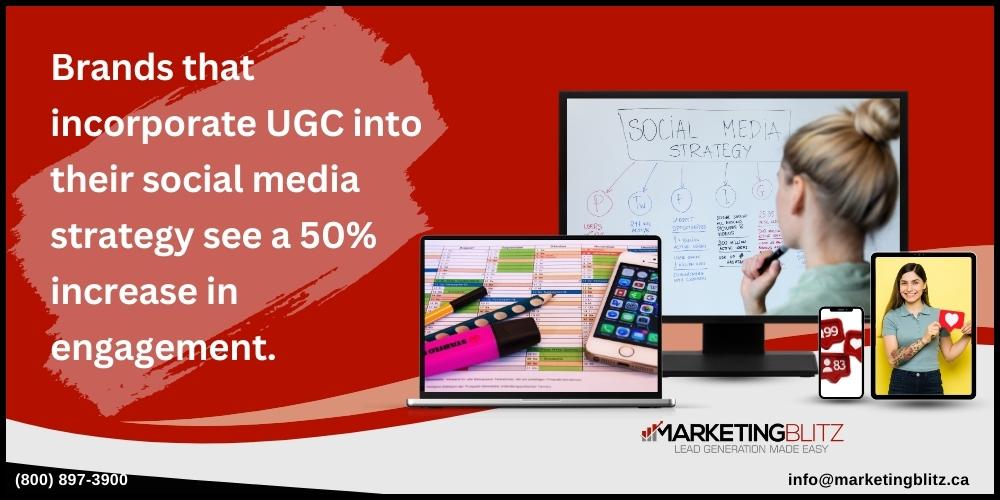
Social media marketing companies can work with you to provide cost estimation for different social media marketing campaigns involves evaluating and planning the budget required for various marketing initiatives on social platforms. Each campaign type has its unique goals, strategies, and associated costs. Here’s an overview of cost estimation for different social media campaigns:
- Brand Awareness Campaigns: These campaigns aim to increase your brand’s visibility and reach on social media. Cost estimation includes factors such as content creation, graphic design, and boosting posts for wider exposure. Costs may vary depending on the frequency of posting and ad spend for sponsored content.
- Engagement Campaigns: Engagement campaigns focus on interactions with your audience, such as likes, comments, and shares. Costs may include content creation, social media management tools, and advertising expenses to promote engaging content.
- Lead Generation Campaigns: To generate leads, you’ll need to invest in content like eBooks, webinars, or whitepapers. Cost estimation includes content creation costs, landing page development, and advertising budgets for lead generation ads on social media platforms.
- Traffic Generation Campaigns: These campaigns aim to drive website traffic. Cost estimation factors in content creation, ad spend for click-through campaigns, and tracking tools to monitor website visits originating from social media.
- Sales Conversion Campaigns: For campaigns focused on converting leads into customers, cost estimation involves content creation (product descriptions, sales copy), ad spend for targeted ads, and tracking tools to measure conversions.
- Influencer Marketing Campaigns: Partnering with influencers involves negotiation and compensation for their services, product samples or compensation, and tracking tools to measure the campaign’s success.
- Contest and Giveaway Campaigns: Running contests or giveaways may include prizes, content creation for promotion, advertising costs to reach a broader audience, and tools to manage entries and select winners.
- Retargeting Campaigns: These campaigns target users who have previously interacted with your brand. Cost estimation accounts for ad spend on retargeting ads and the use of retargeting platforms or tools.
- User-Generated Content (UGC) Campaigns: Encouraging users to create content related to your brand can involve incentives, content curation, and moderation costs. Additionally, you may invest in showcasing UGC through content creation.
- Event Promotion Campaigns: Promoting events on social media requires budgeting for content creation, event graphics, ad spend to reach the target audience, and event registration or ticketing platform fees.
- Awareness and Cause-Based Campaigns: These campaigns focus on promoting social or environmental causes. Cost estimation includes content creation, campaign promotion, and any donations or contributions to the cause.
- Product Launch Campaigns: Launching a new product involves costs for product photography, promotional materials, social media advertising, and tracking tools to measure the product’s success.
- Video Marketing Campaigns: Creating and promoting video content involves costs for video production, editing, ad spend on video ads, and video hosting or streaming services.
- A/B Testing Campaigns: Optimizing campaigns through A/B testing requires budgeting for multiple versions of ad creatives and tools for split testing and analysis.
- Analytics and Reporting: Budget allocation for analytics tools and reporting services to track and measure the performance of social media campaigns.
Cost estimation for social media campaigns should consider the specific objectives, target audience, and platforms used. It’s crucial to monitor and adjust budgets based on campaign performance and ROI to ensure efficient resource allocation.
Social Media Marketing cost estimation for businesses in Canada
The actual cost of social media marketing can vary widely depending on several factors, including the scope of the campaign, the platforms used, the industry, and the geographic location. While exact figures can differ, here’s a rough estimate of the potential costs involved from social media marketing companies:
- Content Creation: Content is at the heart of social media marketing. Costs for creating high-quality content can vary, but you might budget anywhere from $500 to $5,000 or more per month for content creation, including graphics, videos, and copywriting.
- Advertising Budget: If you plan to run paid ads on platforms like Facebook, Instagram, or LinkedIn, your ad spend can vary significantly. Small businesses might allocate a monthly ad budget of $500 to $2,500, while larger enterprises may invest thousands or even tens of thousands per month.
- Social Media Management Tools: To streamline your efforts, you might invest in social media management tools like Buffer, Hootsuite, or Sprout Social. These tools can cost anywhere from $15 to $300 or more per month, depending on your needs.
- Graphic Design and Video Production: Costs for professional graphic design and video production services can vary widely. Expect to allocate several hundred to several thousand dollars per project, depending on complexity.
- Influencer Marketing: Collaborating with influencers can range from a few hundred dollars to several thousand dollars per post or campaign, depending on the influencer’s reach and niche.
- Analytics and Reporting: Tools for tracking and measuring campaign performance may cost between $50 and $500 per month, depending on your requirements.
- Website Landing Pages: If your campaigns drive traffic to specific landing pages, budget for landing page design and hosting, which can range from $500 to $2,000 or more.
- A/B Testing: Expenses for A/B testing campaigns might include additional ad creative costs and software fees, amounting to a few hundred to a couple of thousand dollars.
Social Media Marketing Agency Monthly Fees:
If you partner with a social media marketing agency like Marketing Blitz, fees can vary depending on several factors, including the agency’s reputation, the services offered, the complexity of your campaigns, and your specific requirements. Here’s a ballpark range of what you can expect:
- Small Businesses: Small businesses looking for basic social media management services may pay anywhere from $300 to $1,500 per month. This typically includes content creation, posting, and basic engagement.
- Mid-Sized Businesses: Mid-sized companies with more extensive social media needs, such as content creation, ad campaign management, and analytics, can budget between $1,500 and $5,000 per month for agency services.
- Large Enterprises: Large enterprises with complex campaigns, multiple social media platforms, and a substantial online presence might invest $5,000 to $20,000 or more per month in agency fees.
- Project-Based: Some agencies offer project-based pricing for specific campaigns, such as product launches or promotions. These projects can range from $1,000 to $10,000 or more, depending on the scope.
- Custom Packages: Many agencies offer custom packages tailored to your unique needs. Costs for custom packages can vary widely based on your requirements.
Remember that these are general estimates, and the actual fees may differ depending on the agency’s expertise and the level of service provided. When choosing an agency, it’s essential to discuss your goals, expectations, and budget to determine a fee structure that aligns with your business objectives. Additionally, consider the agency’s track record, case studies, and client reviews to ensure you’re partnering with a reputable firm that can deliver results.
8: Utilizing Paid Advertising In Social Media Marketing
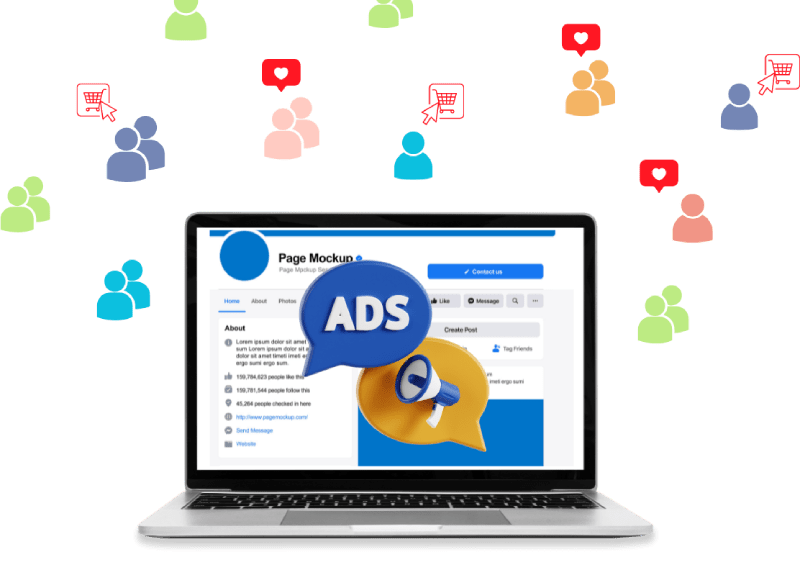
By hiring social media marketing companies you can utilize paid social advertising and influencer marketing to reach a wider audience. These are two distinct yet interconnected strategies that can work together to enhance your social media campaigns.
1. Paid Advertising in Social Media Marketing:
- Paid Ads: Social media platforms offer various advertising options, including sponsored posts, display ads, video ads, and more. These ads allow you to reach a larger, targeted audience beyond your organic reach.
- Precise Targeting: Paid ads enable you to specify your target audience based on demographics, interests, behaviors, and location. This precision ensures that your content reaches the right people.
- Quick Results: Paid advertising can generate immediate visibility and engagement for your campaigns. It’s an effective way to kickstart promotions or product launches.
- Measurable ROI: Paid advertising provides robust analytics, allowing you to track the performance of your campaigns and measure the return on investment (ROI).
- Enhanced Visibility and Reach:Paid advertising on social media platforms acts as a catalyst for visibility. In an era where organic reach is limited, sponsored content ensures your brand is seen by a broader audience, including those beyond your current follower base.
- Diverse Ad Formats: Social media platforms offer a rich tapestry of ad formats. Whether it’s captivating image ads, engaging video content, or interactive carousel ads, businesses can choose formats that align with their marketing goals and resonate with their audience.
- Boosted Engagement: Paid ads can stimulate higher engagement rates. Platforms often prioritize promoted content, leading to increased likes, shares, and comments. This heightened engagement not only expands your brand’s digital footprint but also contributes to improved organic reach.
- Flexible Budget Allocation: Paid advertising is adaptable to budgets of all sizes. Small businesses and startups can benefit from cost-effective campaigns, while larger enterprises can allocate substantial budgets for extensive reach. The flexibility in budgeting makes social media advertising accessible to businesses of varying scales.
- Comprehensive Analytics: Analytical tools accompanying paid campaigns provide valuable insights. Businesses can track the performance of their ads, measure conversions, and gain a nuanced understanding of user behavior. These analytics inform data-driven decisions for future campaigns, ensuring a continuous cycle of refinement and improvement.
2. Influencer Social Media Marketing:
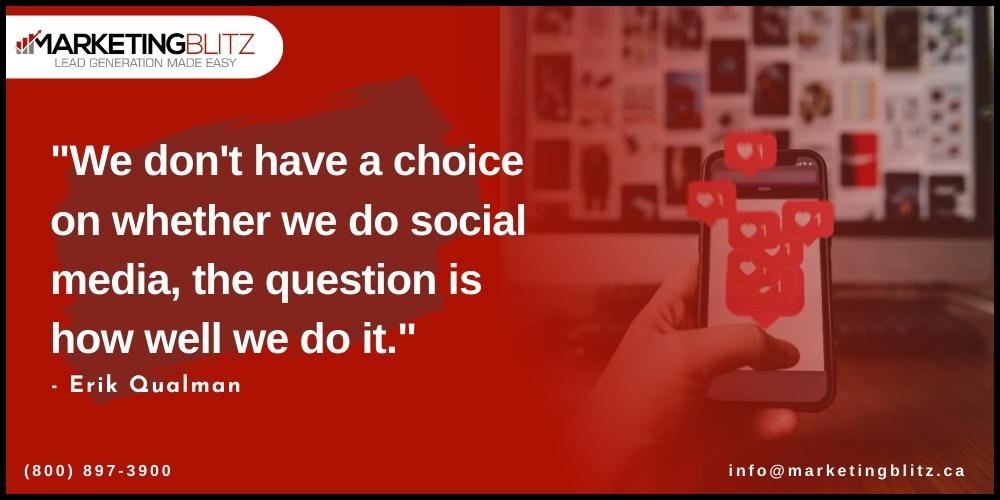
- Influencer Collaboration: Influencer marketing involves partnering with individuals who have a substantial following and influence in your industry or niche. These influencers can promote your products or services to their engaged audience.
- Credibility and Trust: Influencers have built trust and credibility with their followers. When they endorse your brand, it carries more weight and authenticity than traditional advertising.
- Authentic Content: Influencers create authentic and relatable content that resonates with their audience. This can help humanize your brand and make it more relatable.
- Expanded Reach: Partnering with influencers exposes your brand to a broader and potentially untapped audience.
The Connection Between Paid Advertising and Influencer Marketing: - Enhanced Visibility: Combining paid advertising with influencer marketing can amplify your brand’s visibility. Paid ads ensure that your message is seen by a broader audience, while influencers provide a personal touch and endorsement.
- Social Proof: When an influencer promotes your product or service through paid ads, it reinforces social proof. Followers are more likely to trust and engage with your brand when they see someone they admire endorsing it.
- Targeted Campaigns: You can work with influencers who align with your target audience. By integrating influencer marketing into paid campaigns, you ensure that your message reaches the right demographics.
- Engagement and Interaction: Influencers excel at fostering engagement. Through direct interaction with their followers, influencers create a dialogue around brands. This engagement extends beyond mere exposure, contributing to a deeper level of audience connection and participation.
In summary, while paid advertising in social media marketing allows you to reach a wider audience and measure ROI, influencer marketing leverages the credibility and authenticity of influencers to connect with potential customers on a personal level. By combining these strategies strategically, you can create a powerful and comprehensive social media marketing campaign that drives engagement, builds trust, and boosts your brand’s online presence.
9: Implementing Effective SEO (Search Engine Optimization) Strategies
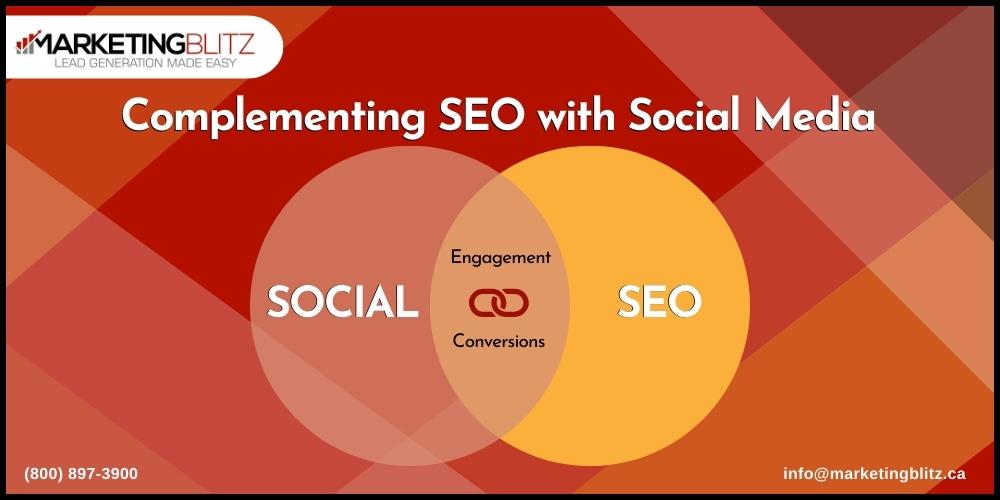
Integration of SEO with Social Media Marketing
Implementing effective SEO (Search Engine Optimization) strategies for social media marketing is essential for maximizing your brand’s online visibility and reach on social platforms. Here’s a detailed overview of how to go about it:
Unified Brand Messaging:
Aligning SEO with SMM ensures consistent brand messaging across platforms. From social media posts to website content, a unified approach enhances brand recognition and reinforces key messages.
Keyword Research and Optimization:
- Start by conducting keyword research to identify relevant and trending keywords in your industry or niche.
- Incorporate these keywords strategically into your social media profiles, posts, and content.
- Optimize your social media bios and descriptions to include key terms that reflect your brand and offerings.
High-Quality Content Creation:
- Develop high-quality, engaging, and shareable content that resonates with your target audience.
- Focus on creating informative, entertaining, and valuable content that addresses the needs and interests of your followers.
- Use relevant keywords within your content, but ensure that they flow naturally and enhance the user experience.
Hashtag Strategy:
- Utilize relevant and trending hashtags in your social media posts to expand their reach.
- Research popular hashtags within your industry and include them strategically in your content.
- Create branded hashtags to encourage user-generated content and engagement.
Optimize Visual Content:
- Pay attention to optimizing visual content, such as images and videos, for search.
Use descriptive file names and alt text for images to improve accessibility and SEO. - Ensure that videos are properly titled, described, and tagged with relevant keywords.
Cross-Platform Link Building and Backlinks:
- Share and promote your social media profiles on your website and other online platforms.
- Encourage backlinks from reputable websites and influencers in your industry.
- Cross-promote your content and profiles with partners and collaborators.
Consistent Posting Schedule:
- Maintain a consistent posting schedule to keep your social media profiles active and engaged.
- Consistency can positively impact your SEO rankings, as search engines value up-to-date and relevant content.
Engage with Your Audience:
- Respond to comments, messages, and mentions promptly to foster engagement.
- Engaging with your audience can boost your social media visibility and encourage user-generated content.
Mobile Optimization:
- Ensure that your social media content and profiles are mobile-friendly.
- With the increasing use of mobile devices, mobile optimization is crucial for SEO.
Analytics and Monitoring:
- Regularly analyze your social media performance using analytics tools provided by the platforms.
- Monitor key metrics, such as engagement, reach, and conversion rates, to refine your SEO strategies.
Stay Updated:
- Stay informed about the latest algorithm changes and updates on social media platforms.
- Adapt your SEO strategies to align with platform-specific changes.
Optimizing Social Profiles for Search Engines:
Complete Business Profile Information:
- Populate your social media profiles with comprehensive information. Ensure all fields, including the bio, contact details, and business information, are filled out accurately. This not only aids users but also enhances search engine indexing.
Keyword-Rich Bios:
- Infuse your Business or Professional Social Media Platforms with industry-relevant keywords. Craft a concise yet informative bio that not only describes your brand but also incorporates keywords potential customers may use in search queries.
Consistent Branding:
- Maintain consistent branding elements across social media platforms. From profile pictures to cover photos, cohesive visuals contribute to brand recognition and strengthen your digital identity, positively impacting SEO.
Enhancing Visibility through Trending Hashtags and Organic Keywords:
Strategic Hashtag Usage:
- Hashtags are powerful tools for increasing discoverability. Research and incorporate trending and industry-specific hashtags into your posts. This practice enhances the visibility of your content and makes it accessible to a broader audience.
Localized Keywords:
- If your business operates in specific regions, incorporate localized keywords. This localization strategy enhances your chances of appearing in local search results, particularly vital for businesses catering to regional markets.
Monitoring and Adjusting:
- Regularly monitor the performance of keywords and hashtags. Analyze which terms are driving engagement and adjust your strategy accordingly. This iterative approach ensures ongoing optimization and responsiveness to shifting trends.
In the ever-evolving landscape of digital marketing, businesses are best served by focusing on their core competencies to maximize revenue. At Marketing Blitz, we specialize in navigating the dynamic realm of online visibility, ensuring your brand remains at the forefront of industry conversations.
Seek Professional Guidance:
- Consider partnering with an experienced social media marketing agency like Marketing Blitz to ensure that your SEO strategies are implemented effectively.
- Marketing Blitz can provide expert guidance and execution of SEO tactics tailored to your brand’s goals and target audience.
By implementing these SEO strategies for your social media marketing efforts, you can improve your brand’s visibility, reach a broader audience, and enhance your overall online presence.
10: Social Media Marketing Analytics And Monitoring
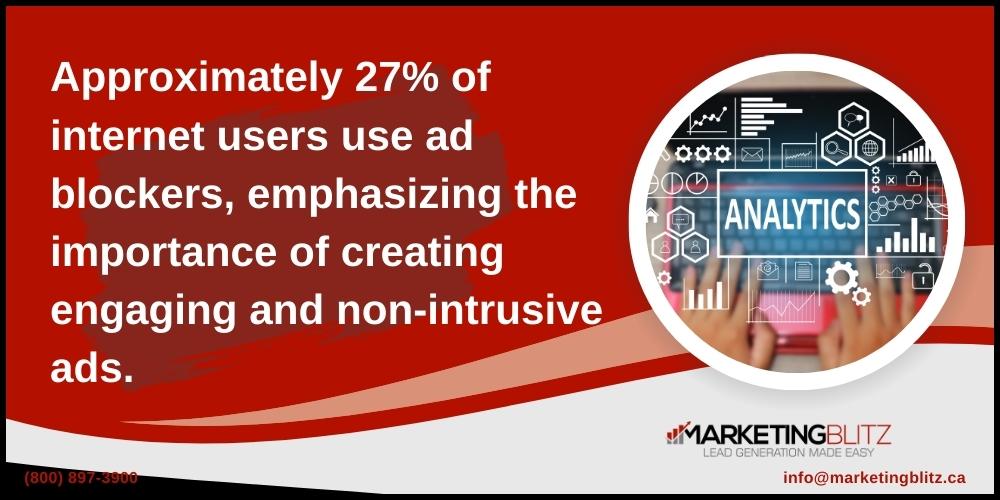
Importance of Analytics in Assessing Campaign Performance
Social media marketing companies can discuss potential social media analytics to measure the effectiveness of your social campaigns and success. Analytics tools provides invaluable insights into the effectiveness of your social media campaigns, allowing you to measure the impact of your strategies on your business objectives.
Analytics go beyond mere numbers; they unravel the story of user interactions, revealing what works and what needs adjustment. At Marketing Blitz, we consider analytics the backbone of our strategies, using data-driven decisions to optimize campaigns for maximum impact.
Monitoring Key Metrics: Engagement, Reach, Conversions
Understanding the nuances of social media metrics is pivotal for strategic decision-making.
- Engagement gauge how well your audience connects with your content
- Reach quantifies the extent of your online presence
- Conversion measures the tangible impact on your business objectives.
Regularly monitoring these key metrics is akin to taking the pulse of your social media health.
Tools for Social Media Marketing Analytics
To navigate the vast sea of social media data, employing the right tools is indispensable. Various analytics tools streamline the process, providing detailed reports and visualizations to make sense of complex data sets.
Let’s explore some of the best tools for social media analytics in 2023:
Google Analytics:
A stalwart in the analytics realm, Google Analytics provides comprehensive insights into website and social media performance.
Key Features:
- Detailed audience demographics and behavior analysis.
- Conversion tracking to measure the success of specific goals.
- Integration with various social media platforms for seamless data collection
Hootsuite:
Hootsuite is an all-in-one social media management tool that includes robust analytics features.
Key Features:
- Real-time analytics for monitoring social media engagement.
- Customizable reports to track key metrics.
- Social listening tools to understand audience sentiment.
Buffer Analyze:
Buffer Analyze is designed to simplify social media analytics, providing actionable insights for businesses.
Key Features:
- In-depth performance metrics for individual posts.
- Top-performing content analysis.
- Competitor analysis to benchmark your performance.
Sprout Social:
Sprout Social offers a comprehensive suite for social media management, including robust analytics tools.
Key Features:
- Cross-platform performance analysis.
- Engagement and response time tracking.
- Customizable reports for different stakeholders.
Brandwatch:
Brandwatch focuses on social listening and analytics, providing insights into brand mentions and audience conversations.
Key Features:
- Sentiment analysis to understand the tone of conversations.
- Trend analysis to stay ahead of industry developments.
- Influencer identification for strategic partnerships.
At Marketing Blitz, we stand out in the digital marketing landscape by leveraging our proprietary in-house toolset for social media monitoring and analysis. Our integrated approach combines website and social media performance metrics, providing our clients with a comprehensive understanding of their online presence. By utilizing cutting-edge technology, we ensure that our strategies are data-driven, delivering optimal results and driving success for businesses in the competitive digital landscape.
In conclusion, social media analytics isn’t just about numbers; it’s about decoding the language of your audience’s interactions and using that knowledge to refine your strategies. Partner with Marketing Blitz to harness the power of analytics and propel your social media campaigns to new heights. Your success story begins with understanding, and analytics is the key that unlocks the full narrative.
11: Building And Engaging With Online Social Media Marketing Community
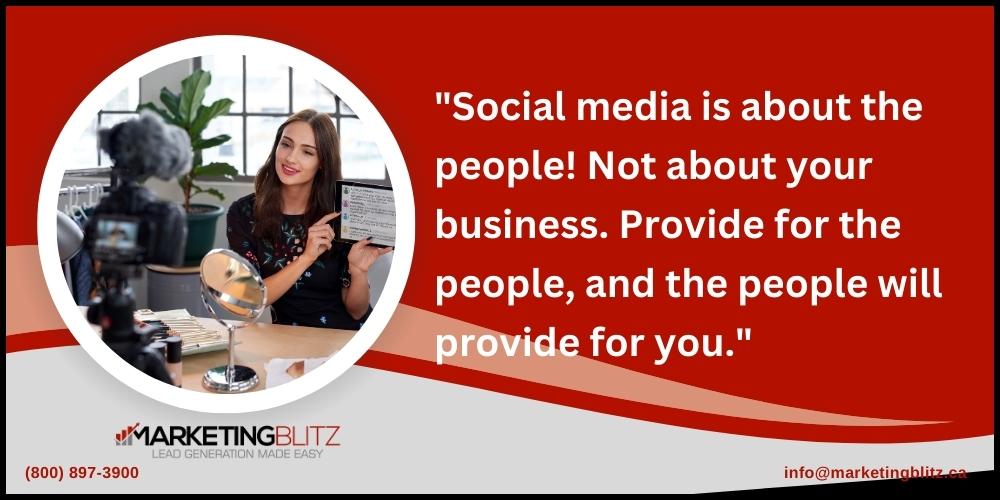
Establishing a Brand Persona on Social Media
In social media marketing, cultivating a strong online community is paramount for sustained success. Crafting a distinctive brand persona on social media goes beyond logos and color schemes. It involves infusing your brand with a personality that resonates with your target audience.
At Marketing Blitz, we emphasize the development of a consistent and relatable brand identity across social platforms. Whether it’s the tone of your posts, the style of your visuals, or the way you respond to comments, each element contributes to shaping a persona that fosters a sense of connection and trust.
Brand Persona Explained:
A brand persona refers to the unique and human-like personality that a brand adopts in its communication and interactions with the audience. It encompasses various elements, including the tone of communication, visual style, values, and overall character that collectively shape how a brand is perceived by its customers.
Importance of Brand Persona for Businesses:
- Humanizing the Brand: In an increasingly digital landscape, establishing a brand persona humanizes the business. It allows consumers to relate to the brand on a personal level, fostering a deeper connection.
- Differentiation: With numerous businesses vying for attention, a distinct brand persona sets a company apart. It helps in carving a niche by showcasing unique characteristics and values that resonate with the target audience.
- Consistent Communication: A defined brand persona ensures consistency in communication across various channels. Whether through social media, marketing materials, or customer interactions, maintaining a consistent persona builds brand recognition.
- Building Trust: Consumers are more likely to trust a brand that exhibits authenticity and transparency. A well-crafted brand persona reflects honesty, creating a trustworthy image in the eyes of the audience.
- Audience Alignment: By tailoring a brand persona to align with the values and preferences of the target audience, businesses can attract and retain customers who identify with the brand on a personal level.
- Emotional Connection: Brands with a strong persona evoke emotions. Whether it’s humor, empathy, or inspiration, eliciting emotional responses helps in creating memorable and lasting connections with consumers.
- Storytelling: A brand persona facilitates effective storytelling. Through a consistent character, businesses can narrate their journey, values, and mission, making their narrative more engaging and relatable.
- Adaptability: As businesses evolve, so can their brand persona. It’s a flexible tool that allows companies to adapt to changing market trends while maintaining a core identity that resonates with their audience.
Encouraging User Interaction and User-Generated Content
The heart of a thriving online community lies in active user participation. Encouraging user interaction and user-generated content is a strategic approach for businesses aiming to build authenticity, community, and brand loyalty. It harnesses the power of satisfied customers to organically market the brand, creating a ripple effect across social media platforms.
User-Generated Content (UGC) Explained:
User-Generated Content (UGC) refers to any content—whether it be text, images, videos, reviews, or testimonials—created by individuals who are not professionally associated with a brand but rather its customers or audience. This content is voluntarily produced by users who share their experiences, opinions, or creative expressions related to a brand, product, or service.
Importance of Encouraging User Interaction and User-Generated Content for Businesses:
- Authenticity: User-generated content is inherently authentic. It comes directly from customers, reflecting real experiences and opinions. This authenticity builds trust among potential customers, as they see genuine feedback from their peers.
- Community Building: Encouraging user interaction fosters a sense of community around a brand. When users engage with each other and the brand, it creates a supportive environment that enhances the overall customer experience.
- Word-of-Mouth Marketing: Users sharing positive experiences through UGC act as brand advocates. Their content serves as a form of word-of-mouth marketing, influencing others in their network to explore and trust the brand.
- Diverse Perspectives: User-generated content provides diverse perspectives and use cases. Different users may showcase how they incorporate a product into their daily lives, offering potential customers a broader view of its utility.
- Increased Engagement: Actively encouraging users to interact—whether through comments, likes, or sharing—boosts overall engagement on social media platforms. Higher engagement contributes to increased visibility and reach.
- Content Variety: Users express themselves in various ways, leading to a diverse range of content. This can include reviews, unboxing videos, product tutorials, and more. This variety keeps the brand’s content strategy dynamic and interesting.
- Cost-Effective Content Creation: User-generated content is often created without any cost to the brand. Businesses can leverage this content in their marketing efforts, reducing the need for producing extensive amounts of branded content.
- Brand Loyalty: When businesses actively engage with and showcase user-generated content, it signals appreciation for their customers. This, in turn, cultivates a sense of loyalty among users who feel valued and acknowledged by the brand.
- Social Proof: User-generated content serves as a powerful form of social proof. Positive reviews, testimonials, and experiences shared by users act as convincing evidence for potential customers, influencing their purchasing decisions.
- Enhanced Reach: When users share their content, they contribute to the brand’s reach. Their networks become exposed to the brand, potentially leading to new followers, customers, and advocates.
Managing Community Feedback
Feedback, be it positive or constructive, is a goldmine of insights. Efficiently managing community feedback involves active listening and timely responses so that businesses can foster stronger relationships with their audience, address concerns promptly, and continuously improve their products or services based on valuable customer input. This proactive approach not only enhances customer satisfaction but also builds trust and loyalty, creating a positive brand image in the eyes of the community.
At Marketing Blitz, we employ a proactive approach to address feedback. Positive comments are acknowledged and amplified, while constructive criticism is met with gratitude and a commitment to improvement. By embracing transparency and responsiveness, we help businesses turn feedback into an opportunity to strengthen their online community and build lasting relationships.
Building a robust online community requires a strategic blend of authenticity, engagement, and responsiveness. Marketing Blitz specializes in tailoring community-building strategies that align with your brand identity and foster meaningful connections with your audience. Let us guide you in creating a vibrant digital community that amplifies your brand’s reach and impact. Connect with Marketing Blitz today, and let’s build something extraordinary together!
12: Social Media Marketing Crisis Management And Brand Reputation

Crisis management refers to the strategic planning and actions taken by a business to effectively handle and navigate through challenging situations that could potentially harm its reputation. In the realm of social media, crises can emerge from various sources, often stemming from negative publicity, viral backlash, or events that capture widespread negative attention. Understanding the dynamics of these triggers is crucial for businesses to effectively navigate and manage potential crises on social media platforms.
- Negative Publicity: Negative publicity can arise from unfavorable reviews, critical comments, or public relations issues. A single negative incident, if not addressed promptly, can escalate and dominate conversations on social media, potentially harming a brand’s reputation.
- Viral Backlash: Social media has the power to amplify content rapidly. A seemingly innocuous incident or a misunderstood message can quickly escalate into a viral backlash. This may involve widespread sharing, comments, and discussions that can significantly impact public perception of a brand.
- Events Triggering Negative Attention: Events outside a company’s control, such as societal issues, controversies, or external factors, can also become focal points for negative attention on social media. Brands may find themselves entangled in discussions related to these events, necessitating careful navigation to maintain a positive image.
Preparing for and Handling Social Media Crises
To effectively manage crises arising from these scenarios, businesses need to adopt a proactive stance. Proactive preparation involves establishing a crisis management plan that outlines potential scenarios, responsibilities, and communication strategies. This includes identifying key spokespersons, monitoring social media channels for early signs of issues, and having pre-drafted responses ready. Swift and transparent communication is crucial during a crisis to address concerns, provide accurate information, and demonstrate a commitment to resolution.
- Monitoring Social Media Channels: Regular monitoring of social media channels allows businesses to detect early signs of potential issues. This includes tracking mentions, comments, and sentiment analysis to identify emerging trends.
- Preparedness Planning: Developing a comprehensive crisis management plan is crucial. This plan should outline potential scenarios, designate roles and responsibilities, and establish communication protocols. Having pre-approved responses for different situations helps in responding swiftly.
- Swift and Transparent Communication: In the event of a crisis, timely and transparent communication is paramount. Addressing concerns, providing accurate information, and demonstrating a commitment to resolution can help mitigate the impact of negative publicity.
- Learning and Adaptation: Post-crisis, a thorough analysis of what went wrong and why is essential. Learning from the experience allows businesses to adapt their strategies, improve processes, and implement preventive measures for the future.
Strategies for Maintaining a Positive Brand Image
Maintaining a positive brand image amidst crisis requires a combination of authenticity, empathy, and strategic communication. Brands should acknowledge mistakes, take responsibility, and communicate corrective actions. Sharing positive stories, community engagement, and consistently delivering quality content contribute to building a resilient brand image that can withstand challenges.
Here are key strategies to safeguard and enhance your brand’s reputation:
- Consistent Brand Messaging: Ensure that your brand messaging remains consistent across all social media platforms. Consistency fosters brand recognition and trust among your audience. Establish core brand values and principles that resonate with your target audience.
- Engage Authentically: Authenticity is paramount in the digital age. Engage with your audience in a genuine and human way. Respond to comments, messages, and reviews with sincerity. Authentic interactions contribute to a positive perception of your brand.
- Quality Content Creation: Invest in creating high-quality and relevant content. Share content that adds value to your audience’s lives, aligns with your brand identity, and sparks positive conversations. Quality content not only attracts engagement but also reinforces your brand’s authority.
- Community Building: Foster a sense of community among your audience. Encourage discussions, user-generated content, and interactions. A strong online community can act as brand advocates, actively promoting positive sentiments around your brand.
- Transparency in Communication: Be transparent about your business practices, products, and any challenges you may face. Honest communication, especially during crises, helps build trust. Address issues openly, share updates, and acknowledge mistakes when necessary.
- Monitor Brand Mentions: Regularly monitor social media channels for brand mentions, comments, and reviews. Stay vigilant about what people are saying about your brand. Swiftly address any negative comments or concerns, demonstrating your commitment to customer satisfaction.
- Social Responsibility Initiatives: Engage in social responsibility initiatives that align with your brand values. Showcase your commitment to making a positive impact on society or the environment. Socially responsible brands often garner favorable attention and support.
- Influencer Partnerships: Collaborate with influencers who align with your brand values. Influencers can help amplify your positive messaging and reach new audiences. Authentic partnerships with influencers build credibility and trust.
- Customer Testimonials and Success Stories: Highlight customer testimonials and success stories. Positive experiences shared by real customers serve as powerful endorsements. Encourage satisfied customers to share their stories and experiences on social media.
- Regularly Evaluate and Adjust: Social media landscapes are dynamic. Regularly evaluate your strategies, assess social media trends, and adjust your approach accordingly. Stay adaptable to changes in consumer behavior and preferences.
Learning from Past Social Media Mistakes
Analyzing past social media mistakes is an essential aspect of continuous improvement. By learning from errors, businesses can refine their strategies, identify potential vulnerabilities, and implement measures to prevent similar issues in the future. This proactive approach not only minimizes the impact of crises but also contributes to long-term brand resilience and growth.
13: Social Media Marketing Future Trends

As the digital landscape evolves, staying ahead of emerging trends is crucial for effective social media marketing. Here’s a glimpse into the future of social media marketing:
Emerging Technologies and Platforms
Meta Platforms
As Meta Platforms (formerly Facebook) continues to evolve, businesses should leverage its dynamic features for enhanced social media marketing.
Metaverse Engagement: Meta’s vision for the metaverse introduces new possibilities for immersive brand experiences. Businesses can explore creating virtual spaces, interactive events, and engaging content within the metaverse to connect with users in novel ways.
Augmented Reality (AR) Ads: Meta offers AR ad formats, allowing businesses to integrate augmented reality elements into their advertisements. This interactive approach enhances user engagement and provides a unique way to showcase products or services.
Community Building: Meta emphasizes community building through groups and pages. Businesses can leverage these features to foster a sense of belonging among their audience, encouraging discussions, and creating a loyal community around their brand.
Ad Campaign Customization: Meta’s advertising platform provides extensive customization options. Businesses can tailor their ad campaigns based on specific objectives, target demographics, and desired outcomes. This flexibility ensures that marketing efforts align closely with business goals.
By harnessing the power of AI tools, businesses can elevate their social media marketing strategies, delivering more personalized and impactful experiences to their audience. Additionally, strategically utilizing Meta Platforms allows businesses to stay at the forefront of social media innovation and connect with users in a meaningful way.
AI Tools in Social Media Marketing:
Artificial Intelligence (AI) is revolutionizing social media marketing, offering businesses innovative tools to enhance efficiency, personalize content, and optimize strategies.
Personalization and Targeting: AI-powered algorithms analyze user behavior and preferences, enabling businesses to create highly personalized content. From targeted advertisements to tailored recommendations, AI helps businesses connect with their audience on a more individualized level.
Chatbots and Customer Service: Integrate AI-driven chatbots into social media platforms to provide instant responses to customer queries. These virtual assistants enhance user experience, offering real-time engagement and problem resolution.
Predictive Analytics: AI tools analyze vast amounts of data to predict trends, user behavior, and content performance. This data-driven approach empowers businesses to make informed decisions, refine their strategies, and stay ahead of market trends.
Content Creation and Curation: AI algorithms can generate and curate content, saving time for marketers. From writing compelling captions to suggesting relevant articles, AI streamlines content creation processes and ensures consistency.
Voice Search Optimization:
With the rise of voice-activated devices, optimize your content for voice search. Craft conversational and natural language in your social media posts to align with the way users interact with voice-activated platforms.
Anticipated Shifts in User Behavior
Privacy Concerns and Personalized Marketing: Expect a heightened focus on user privacy. Adapt your marketing strategies to prioritize transparent data usage and offer personalized experiences that respect user preferences.
Short-Form Video Dominance: Short-form videos will continue to dominate. Tailor your content for platforms like TikTok, Instagram Reels, and YouTube Shorts to captivate audiences with concise and engaging videos.
Rise of Social Commerce: Witness an increased integration of e-commerce within social platforms. Explore features like in-app shopping, live commerce, and shoppable posts to facilitate seamless purchasing directly through social media.
Gen Z Influence: Recognize the influence of Generation Z. Adapt your content to resonate with their values, preferences, and commitment to authenticity. Gen Z is poised to shape the future of social media trends.
Adapting Strategies for the Evolving Landscape
Data-Driven Decision-Making: Embrace data analytics and artificial intelligence for informed decision-making. Analyze user behavior, preferences, and engagement metrics to refine your social media strategies.
Sustainability and Social Responsibility: Integrate sustainability initiatives into your brand narrative. Users increasingly support socially responsible brands, so align your values with environmental and social causes.
Interactive and Immersive Content: Focus on interactive content formats. Leverage polls, quizzes, augmented reality filters, and immersive experiences to capture user attention and encourage participation.
Cross-Channel Integration: Strengthen cross-channel integration to provide a seamless brand experience. Connect your social media efforts with other digital marketing channels for a cohesive and impactful strategy.
Adapting to future trends in social media requires expertise and a dynamic approach. Marketing Blitz, as a leading marketing agency, is your strategic partner in navigating emerging technologies, such as AI and Meta Platforms, to craft innovative campaigns. Our commitment to staying ahead of the curve ensures your business leverages the latest tools, platforms, and trends, providing a competitive edge in the rapidly evolving landscape. Trust Marketing Blitz to propel your brand into the future, delivering cutting-edge strategies that resonate with your audience and outshine competitors.
14: Social Media Marketing Frequently Ask Questions (FAQs)

What is social media management, and why is it important for businesses?
Social media management involves overseeing and optimizing a company’s social media presence. It’s essential for businesses as it helps build brand awareness, engage with the audience, and drive traffic and conversions.
How often should I post on social media, and on which platforms?
The frequency of posting depends on your audience and goals. Typically, businesses post 3-7 times per week on platforms like Facebook and Instagram. The choice of platforms should align with your target audience’s preferences.
Do I need to create original content for every post?
While original content is valuable, you can also curate relevant content from trusted sources and supplement it with your content. A mix of both can maintain engagement and save time.
What are the key metrics to track for social media success?
Key metrics include engagement (likes, comments, shares), reach, click-through rates, and conversions. Monitoring these metrics helps assess the effectiveness of your social media strategy.
Should I hire an in-house social media manager or work with an agency?
The choice depends on your needs and resources. In-house managers offer more control, while agencies bring expertise and scalability. Consider your budget and goals when deciding.
What is social media marketing, and how does it differ from organic social media management?
Social media marketing involves paid advertising campaigns on social platforms to achieve specific objectives, while social media management focuses on organic, non-paid efforts.
What is the typical budget for social media advertising campaigns?
Budgets vary widely but can start as low as $200 per month for small businesses and range from $1,000 to several thousand dollars per month for more extensive campaigns.
How can I target the right audience with social media advertising?
Social media platforms offer robust targeting options, allowing you to choose demographics, interests, behaviors, and even retarget website visitors. Proper audience segmentation is crucial for success.
What types of social media ads are most effective for different marketing goals?
The choice of ad type depends on your objectives. For brand awareness, use video or image ads. For lead generation, consider lead generation forms. For e-commerce, use dynamic product ads.
What is a good ROI for social media advertising?
ROI varies by industry and campaign objectives. A positive ROI indicates success, but the benchmark can differ. It’s essential to track ROI regularly and optimize campaigns accordingly.
15: Conclusion and Key Takeaway: Social Media Marketing
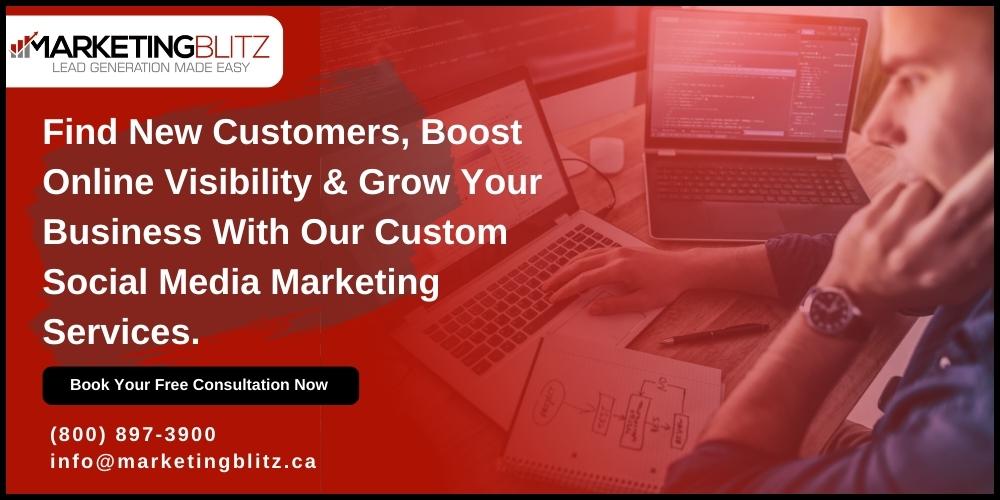
In this comprehensive guide, we’ve explored the multifaceted realm of strategic social media marketing, dissecting key strategies for success. From understanding business objectives to tailoring content for diverse platforms, each step is a building block toward an effective social media presence.
Continuous Social Media Strategy Adaptation and Innovation
The field of social media marketing is ever-evolving, shaped by business goals, emerging technologies, user behavior shifts, and dynamic platforms. As we conclude, the emphasis is on continuous adaptation and innovation.
Stay agile, embrace change, and leverage the expertise of Marketing Blitz to navigate the evolving landscape with confidence.
Final thoughts on social media marketing companies:
Social media marketing isn’t just a tool; it’s a dynamic landscape that demands creativity, strategy, and a pulse on the latest trends. Marketing Blitz stands ready to be your partner in this journey, ensuring your brand not only keeps up with the changes but leads with innovation. As we step into the future, remember that the power of social media lies not just in its tools but in the strategic minds that wield them.
Save time and supercharge your small business with the dedicated Social Media Marketing team at Marketing Blitz. Elevate your business brand across social media channels, engage your followers strategically, and keep a vigilant eye on online sentiments surrounding your brand. Unleash the power of effective social media marketing. Click link to learn more about our social media management packages or social media advertising package or contact our social media marketing company toll free 1-(800) 897-3900 to book a free consultation.
Alex Bangura
Alex, a digital marketing pro with 10+ years of experience, founded Marketing Blitz Inc. He has offer digital marketing consultations to over 500 local businesses across Canada. With a track record of delivering impressive ROI in highly competitive markets, Alex crafts tailored marketing strategies that drive increased website traffic, leads, and sales for his clients. He use his diverse skill set encompassing team collaboration, online and offline lead generation, systems development, marketing automation, campaign management, sales, technical support, process optimization, and operations to give local businesses and fellow marketers advice they can trust.
